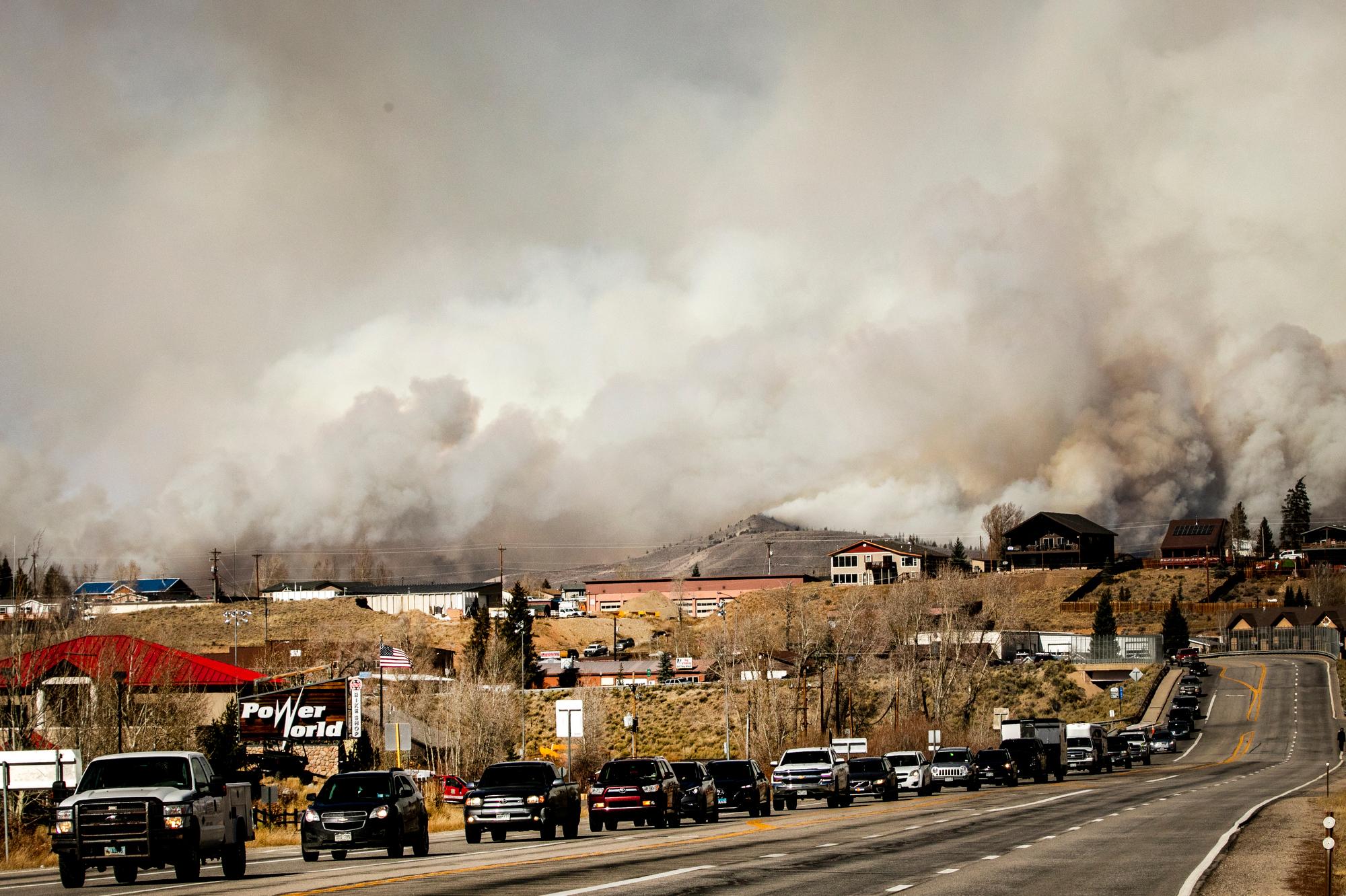
Congressional leaders agree the western United States is at dire risk of destructive wildfires but continue to spar over who or what is to blame for their increased threat.
The gap was evident during a hearing Thursday by the U.S. House Subcommittee on National Parks, Forests and Public Lands, chaired by Democratic Colorado Rep. Joe Neguse. In his new role, Neguse has emphasized the need to improve response to wildfires, particularly on preventing massive ones from growing and ravaging states.
Democrats said the effect of climate change fueling bigger, less predictable wildfires should not be overlooked. Republicans said it is the federal approach to fire prevention over the last few decades that has crowded forests with dense, overgrown trees.
A panel consisting of forest and land experts, a former firefighter and a rancher called on Congress to put more funding and resources toward fire mitigation, improve pay and working conditions for wildland firefighters, give more decision-making authority to regional governments and set more prescribed burns.
Dave Daley, a California rancher who lost most of his cow herd during the North Complex Fire last year, urged the legislators to take action.
“This isn’t about retreating to corners about who’s right. This is about finding solutions,” he told lawmakers. “Particularly federally, we have to work on an agenda, and it doesn’t deal with the tragic realities of what I saw and witnessed.”
During subsequent questioning, Republican committee members downplayed climate change and pushed instead to reduce the amount of fuels in forests by removing trees and conducting controlled burns. Though members said the wood could be turned into biomass, experts say Colorado’s existing lumber market is too small to do so, with much of it ending up in landfills.
Republican Rep. Tom Tiffany of Wisconsin argued for bringing in more private industry to manage federal forest land.
“We are digging a hole that was created by ourselves in federal management over the last 30 to 40 years,” Tiffany said about existing fire suppression strategies. “That can be fixed, but it is not going to be fixed by another federal government program.”
Democratic Rep. Diana DeGette of Colorado rebuked Tiffany, saying the country needs more resources and “multifaceted approaches” to become more resilient to wildfires.
“This is something the federal government can and should address,” she said. “Just letting it devolve to the states or to the local governments, it has a real patchwork approach.”
Neguse pitched his proposal for a 21st Century Conservation Corps, which would allocate more than $40 billion to manage forest lands, mitigate wildfires and restore trails.
- After Years Of Tough Lessons, Spanish-Speaking Communities Rise To Get Wildfire Information Fast And In Their Language
- How These Scrap Wood Startups Could Help Colorado Fight Wildfires
- Foresters Want More Prescribed Burns To Avoid Future Wildfire Disasters In Colorado. But The State Forest Service Isn’t Allowed To Conduct Them
- When The Wilderness Meets The Urban, Homeowners And Neighbors Are On Their Own Against Wildfires
- Stronger Building Codes And Other Rules Can Save Homes From Wildfires. So Why Doesn’t Colorado Have A Statewide Law Mandating Them?
- Colorado’s East Troublesome Wildfire May Signal A New Era Of Big Fire Blow-ups
“I do think there are bipartisan solutions that can address the wildfires that are becoming so pervasive across the western United States,” Neguse said, adding he would partner with Republican legislators on rethinking forest management.
“Let’s also not divorce what’s happening from climate change,” he continued. “These fires will become even more intense and fire seasons will stretch into fire years.”
Colorado leaders are preparing for a long and dangerous fire season, one worsened by an extended drought and the Earth’s warming climate. The state is banking on suppressing fires early to prevent them from reaching the size of the Cameron Peak and East Troublesome fires last year.
Daley said that while there are several barriers to improving wildfire mitigation, he was concerned that arguments over assigning blame would keep the federal government in gridlock.
“Part of that is regulation. Part of that’s debate. Part of that is lack of resources,” Daley said. “To us on the ground, I don’t care what it is. Can’t we do something?”








